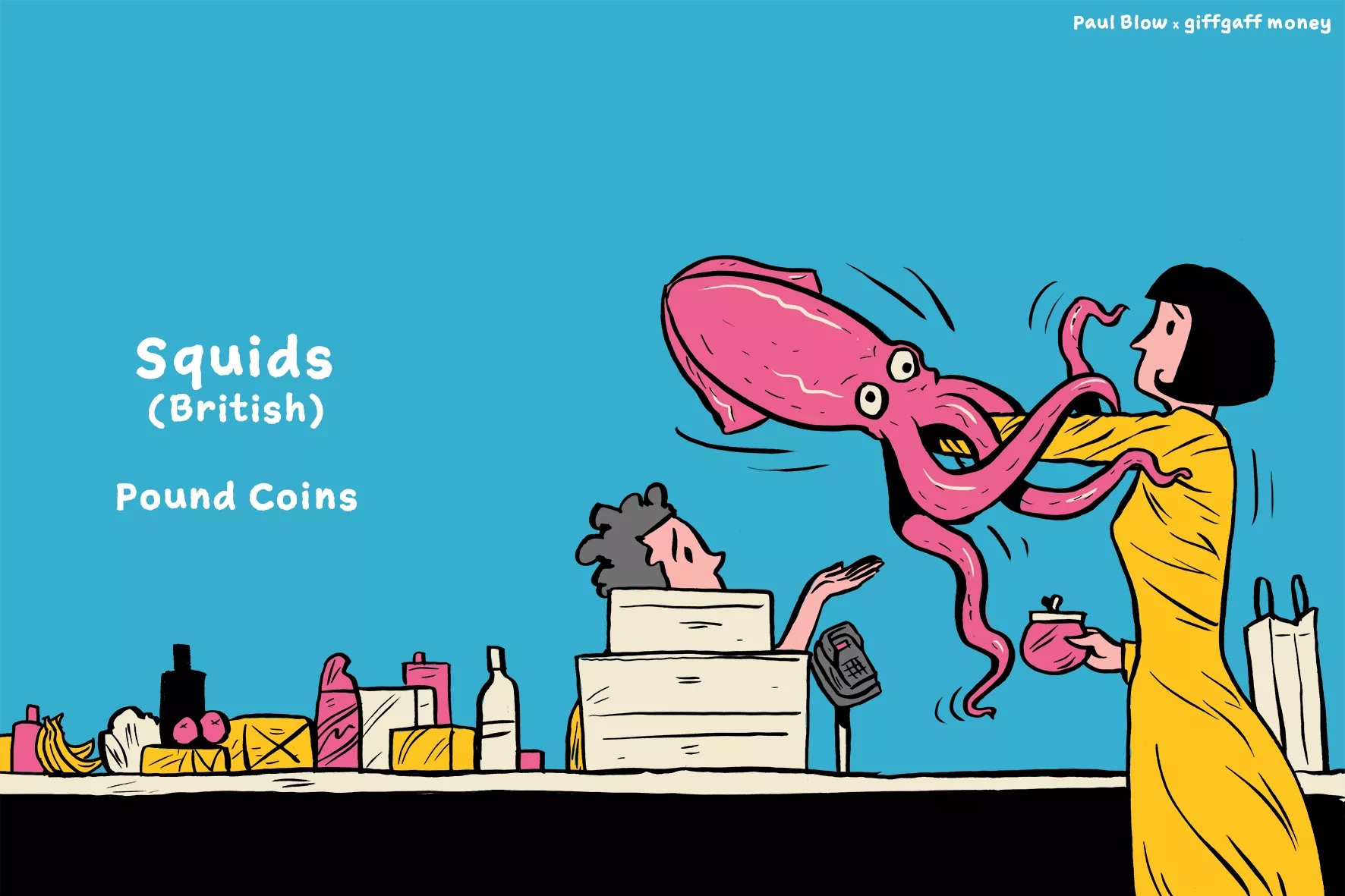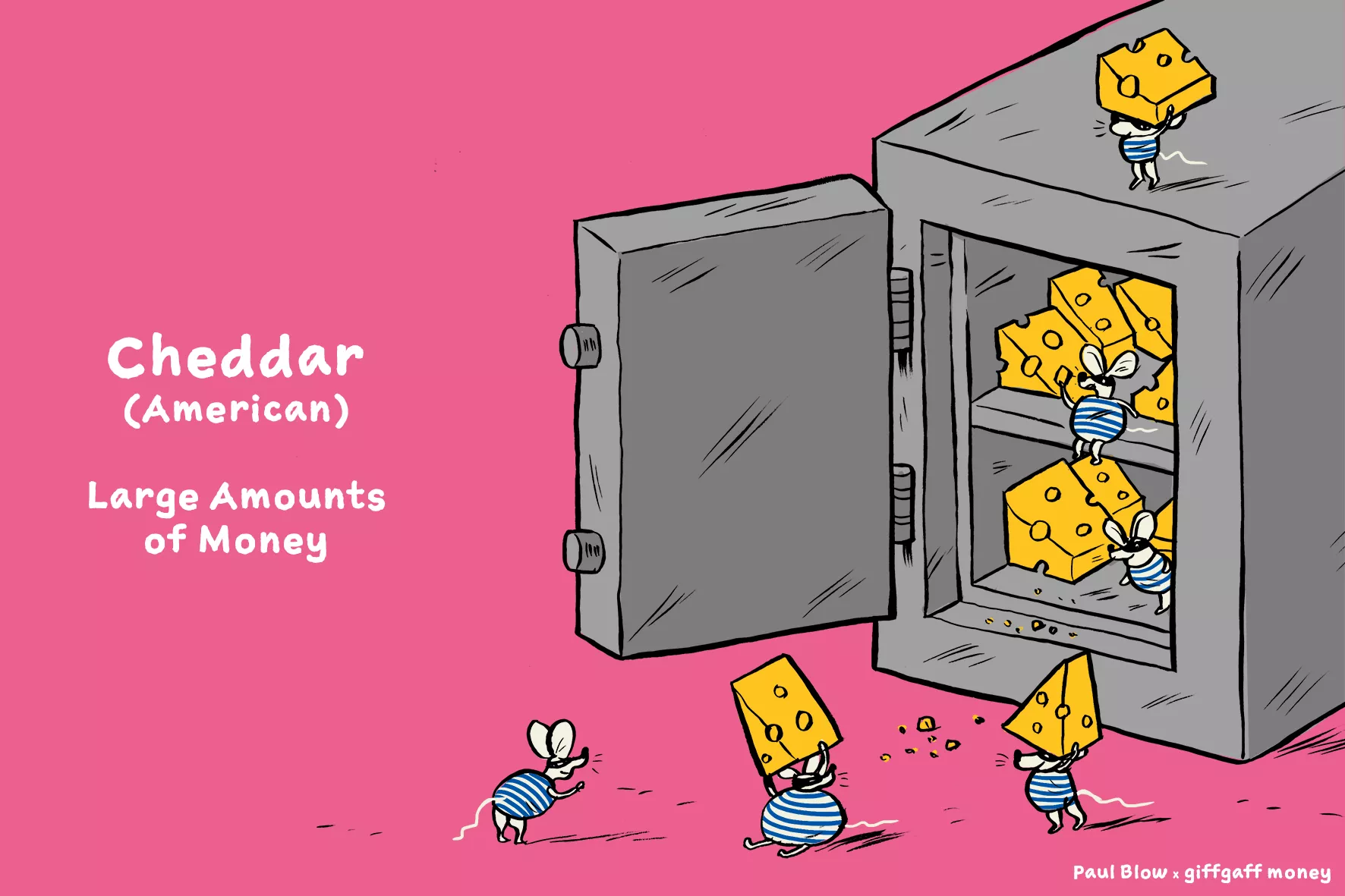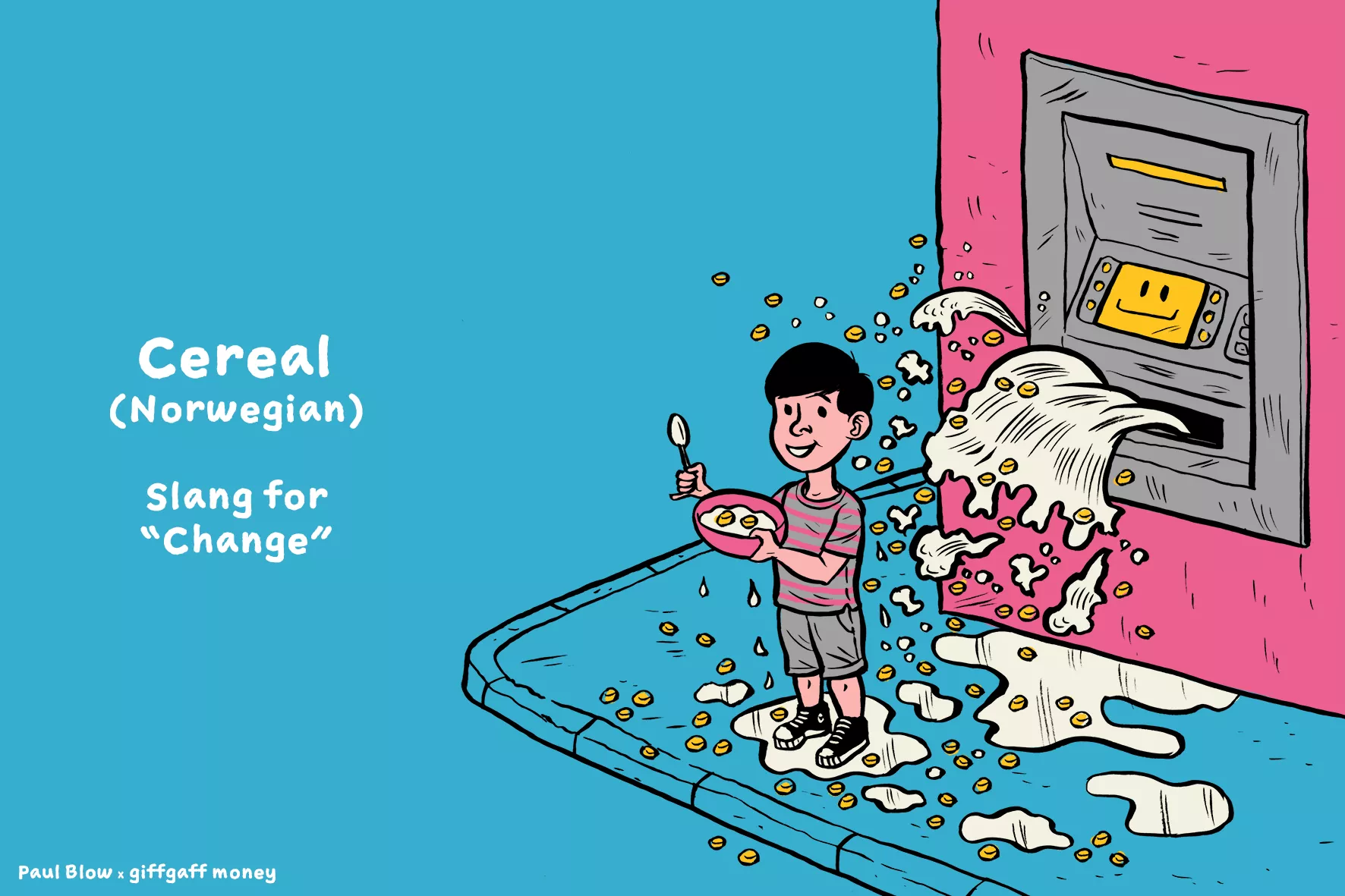GLOBAL MONEY SLANG

February 21st is International Mother Language Day. Whilst we may sound different to one another, it’s our use of language that makes us the same. Scientifically speaking, language (although different everywhere we go) makes us all human.
Yet phrases and expressions can often be confusing when we translate from our mother tongue to another. Despite these dialectal disparities, there are still a few things in life that are completely universal – such as food, music, and art. There’s one thing in particular that is a familiar talking point for everyone – currency. They say that money makes the world go round, so here are the phrases that you might need to know when conversing with someone from a different country.
Here’s a look at the global money slang, researched by giffgaff gameplan and illustrated by awared winning artitist Paul Blow that could have your tongue twisted for International Mother Language Day.
PASTA IN SPAIN

The Spanish word for pasta is “pastas” (with a non-silent ‘s’ on the end) and in Spain, it translates as money. The exact origins are still unclear, but perhaps this was a natural progression from “pesetas” after moving to the Euro.
MOSQUITOES IN GERMANY

There’s no need to reach for the insect repellent if you hear the word “Mücken” in Germany. Yes, it translates as mosquitoes but it actually means the small change in your purse or pocket.
SQUIDS IN THE UK

Cockney rhyming slang is better understood in the south of the country, but “squids” is slang that can be used everywhere. Derived from the original slang word “quid”, which later made it into the dictionary.
LOBSTER IN AUSTRALIA

In Australia, the term “lobster” is used to describe a $20 bill. But this has nothing to do with fine dining. A $20 note is compared to the crustacean due to it being red in colour. Similarly, their $5 bills are “pink ladies” and their $10 bills are “blue swimmers”.
CHEDDAR IN AMERICA

If you’re rolling in cheddar, you’ve got lots of money. Other food-related terms that can describe large amounts of cash in the US include “dough” and “clams”.
TOAD IN DENMARK

The animal kingdom hasn’t inspired the Danes with their money slang. Instead, they take a phonetically fun approach to shortening their words. Examples include “hund” (dog) instead of “hundrede” (hundred) and “tudse” (toad) instead “tusind” (thousand).
CEREAL IN NORWAY

Ask for more “gryn” at breakfast and you could end up getting paid. Norwegians also say “stål” (steal) to talk about cash in general. An even stranger slang word, “laken” (bedsheet), refers to the 1,000Kr note.
CABBAGE IN RUSSIA

Cabbage may be the food of peasants, but for the Russians it can mean the dosh that puts dinner on the table (even if it is cabbage soup).




Love this!